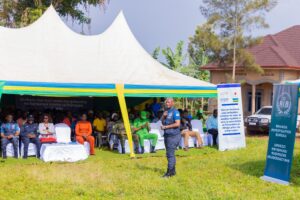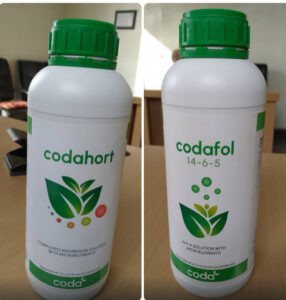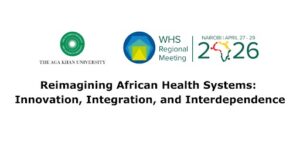CollatEd Lab is the world’s first policy innovation lab dedicated to uniting multi-sectoral, global leaders to spearhead the development of inclusive and sustainable societies.
The Global Governance Summit 2020 (GGS2020). Facilitating policy dialogue on aligning sustainable finance, resilient healthcare systems, global government capacity-building and combating COVID-19 in light of recent events, GGS unites economic development stakeholders to accelerate the SDGs, kicking off a decade of effective, innovative action.
“Global governance summit brings together different nations across the world, to reflect and improve the economy, health and education to name but a few,” said Issiaka Bernard, the State worker, Ministry of Transport and Communication Democratic Republic of Congo.
He added that GGS should focus on the new global governance post Covid-19, which is essential as far as strengthening the economy is concerned.
Meanwhile, James Nkubito, Global Board Director Collated Lab cited that there is as well the need for Africa to embrace a strong, ICT in health, and Infrastructure and Education systems for the future.
Backing up his point, he said this is to ensure that in case another pandemic or crisis befell, one can be treated back at home using ICT based health system.
Speaking to Pressbox Reporter regarding the fresh E book project, James Nkubito said: “Now we are looking forward for the E book which will be all about putting together practices from different countries. It will cover how is the contribution of countries participants to the summit, those who shared their views online. This E book is coming up to cover different experiences after the global governance summit where different leaders convened and shared experiences, knowledge, understanding of SDGs. So, in this E book we are going to cover more than what was covered under the GGS2020.”
“We call upon government leaders, other officials, international organizations to participate in this E book, give us their views, understandings about the global governance and how the world can work together to fight COVID-19 and how the world can make the SDGs more effective, well leveraging on partnerships and global governance policies. This will lead to a successful E book, after putting together all those ideas.” Added Nkubito.
“Indeed this will be an opportunity for me to increase my knowledge, skills and network,” said Kouemou Sinda Lefontine, infectious diseases specialist / humanitarian Founder/CEO at St. Leonard Health & Research Foundation, Cameroon
Some of the GGS 2020 official discussion Topics included the Impact of COVID-19 on Women, Children, and the Disabled Community in Africa and Abroad, Aligning Financial Mechanisms for Sustainable Development, Building Resilient Health Systems, Are We Still on Track to Achieve the SDGs? How the Agenda for Sustainable Development Will Change This Decade after COVID-19? Addressing the Root of the Problem. Navigating the Political Economy during Complex Humanitarian Crises, also Capacity-building in Developing Nations: Education, Multidimensional Poverty.
According to Dr Menelas Nkeshimana, officer in charge of Case Management & IPC Sub-cell in Rwanda Joint Taskforce for COVID-19, Virtual Conferences have greatly contributed to the fight against COVID-19 pandemic.
“When facing health threat of this magnitude, the 5 S apply (Staff, Systems, and Space & Social Protection). Through virtual conferences, all staff involved in COVID-19 response was trained on this new disease, and equipped with all the necessary information & skills needed to combat it efficiently. Towards the end of May 2020, Rwanda Medical Association has organized a very significant 3-days seminar to train doctors from all provinces in Rwanda. Undoubtedly, the successful implementation of a decentralized COVID-19 care in provinces relied on such a robust preparation of staff.” Highlighted Dr. Nkeshimana
This E book project will mostly include over 25 countries in Africa, UN agencies, etc.
According to Dr Tedros Adhanom Ghebreyesus, WHO Director‑General, the global spread of the virus has overwhelmed health systems, and caused widespread social and economic disruption.
“By putting societies and economies on hold, we have curtailed the ability of the virus to spread through our communities. These defensive measures have helped to limit some of the short-term impacts of the virus, and bought us time to translate what we have learned about the virus into solutions so that we can get back to a more normal way of living: a new normal. We have learned so much about this virus, and we’re still learning.” He said amid Mid-April COVID-19 strategy update.





